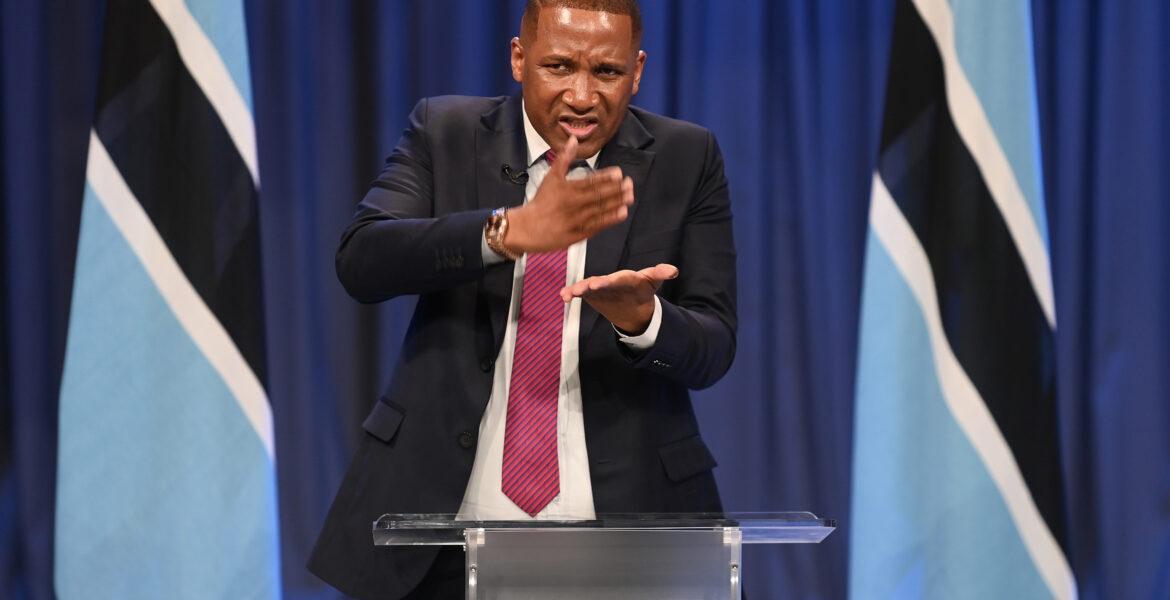Africa-Press – Botswana. President Boko’s recent recognition by Time Magazine, presents a unique opportunity for Botswana to leverage this global attention in its quest to attract foreign direct investment (FDI) and revitalise its economy, asserts, Mr Spencer Mogapi, a former journalist and communications expert at Tsogo Advisory.
Time Magazine’s annual list of the 100 most influential people highlights global icons who embody hope and strive to create a positive impact in the lives of others. In this context, Mr Mogapi noted that President Boko’s inclusion on this prestigious list shortly after taking office reflected a moment for Botswana on the international stage.
“President Boko has captured the global imagination by taking a unique approach to governance, championing human rights in a continent historically fraught with political turmoil and military coups,’ Mr Mogapi said in an interview.
He emphasised that the president’s recent ascent to power, ending a 58-year reign of the Botswana Democratic Party, has rekindled hope among Batswana for meaningful political and economic changes.
Mr Mogapi highlighted the rigorous vetting process that nominees undergo to be included in Time’s list, underscoring the honour this recognition represents for both President Boko and Botswana, a small nation in the African continent.
He expressed optimism that the president understands the magnitude of his responsibilities and the need to deliver on his promises, asserting that failure to do so could lead to disillusionment among voters in future elections.
For Botswana to create a sustainable legacy, Mr Mogapi emphasised the necessity of economic reforms, especially in light of the declining diamond sales, which have historically been the backbone of the country’s economy. “Relying solely on diamonds to resolve economic challenges is no longer viable; we must chart a new course through economic diversification and the introduction of skilled labour,” he said.
During his campaign, President Boko made ambitious pledges, including doubling the minimum wage, enhancing social benefits, and creating thousands of new jobs by focusing on emerging sectors such as cannabis and solar energy. However, Mr Mogapi noted a lack of cohesive communication from government offices regarding these initiatives and urged the government to align its messaging.
“Timing is crucial,” he said, stressing that the sooner the administration acted on its policies, the better it would be for the economy and the people of Botswana.
He praised the proactive developmental plans from the Ministry of Finance, suggesting that if executed correctly, they could establish a lasting legacy for President Boko.
Mr Mogapi advised the president to cultivate a council of diverse advisors rather than surrounding himself with sycophants.
He underscored the importance of considering various perspectives while ultimately making decisions that reflected the will of the people.
He believes that if President Boko successfully navigates the challenges ahead, he could transform global perceptions of Botswana and serve as a model for other nations on improving governance and promoting human rights.
“The support of Batswana is vital in holding the president and his administration accountable. If we succeed in that, we ensure that he remembers that he was elected to serve the people.”
While it may be too early to judge the president’s full impact, Mr Mogapi noted signs of positive efforts by President Boko to enhance the welfare of the populace.
He remains hopeful that the administration would adapt quickly to the economic landscape they inherited.
Meanwhile, Head of UNDPA – SADC Liaison Team, Marthino Chachiua said the recognition of President Boko at a global stage is a testament of how the traditionally known as small countries, in particular, Botswana has demonstrated strong and principled democratic leadership based on respect of human rights as the fundamental of leadership.
Mr Chachiua said the fact that the president took power after 58 years of one party dominating he stood as an icon that represented the consolidation of democracy, which was a culmination of political stability of a country.
He said the fact that it was a smooth transition of power in the country after so many years, often in Africa that could have translated into squabbles, but because the hand of power was seamless it was a huge achievement for the country.
For More News And Analysis About Botswana Follow Africa-Press






